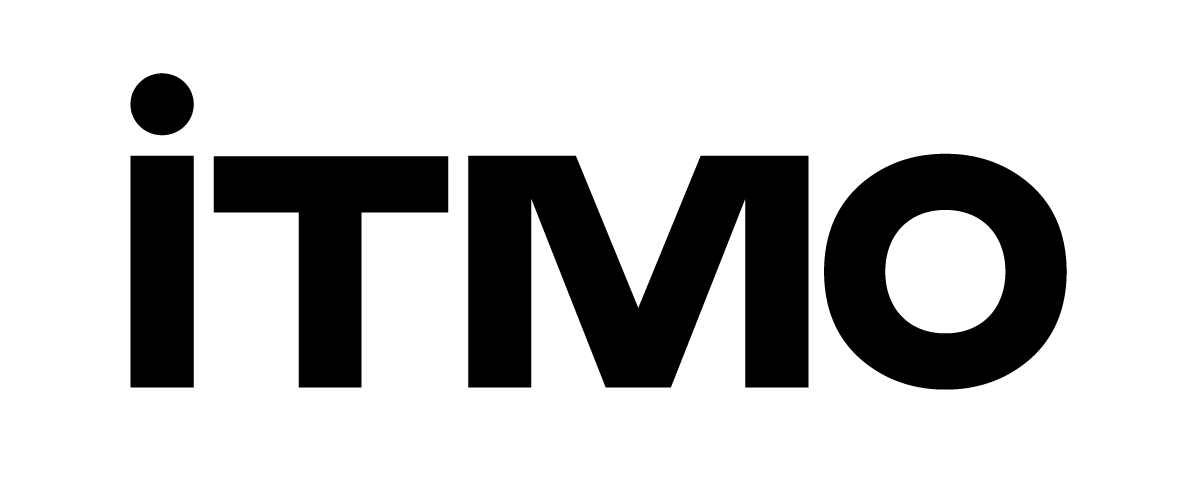International program in English for students with biological and computer science backgrounds
BIOINFORMATICS
AND SYSTEMS BIOLOGY



annual tuition fee
599 000
format
Online
total number of credits
120 ECTS
places with tuition fee
12
program language
English
duration of study
2 years
About bioinformatics
Nowadays, when biological science is at the post-genomic stage of its development, almost every study involves generation of huge amounts of experimental data: genomic, transcriptomic, proteomic and other omics data. Bioinformatics and systems biology are interdisciplinary fields that combine biology, computer science and statistics; they develop methods and software tools for understanding various biological data, and focus on its correct analysis, integration and interpretation.

The degree requires that you complete
- BSc degree in biological/medical science or related fields
You are expected to have a strong background in Biology and basic knowledge of mathematics and Python.
You will learn about computational and statistical methods, programming, data processing and analysis
Your track for the first semester is Data analysis in Biology. - BSc degree in mathematics, informatics or other technical specialization
You are expected to have a strong background in Mathematics and Algorithms and basic knowledge of Biology.
You will learn how to develop and apply novel computational biology methods.
Your track for the first semester is Algorithmic Bioinformatics.

We teach you to develop and apply bioinformatic methods for:
- sequencing data analysis
- genome assembly and annotation
- searching for genetic associations
- investigating the molecular mechanisms of genetic diseases
- comparative analysis of metagenomic data
- evolutionary research
- structural modeling for pharmacological problems
STUDY
STUDY
- 1 semesterYour studies will begin with an introduction to bioinformatics. Next, students in the Data Analysis in Biology track will study discrete mathematics, statistics, and Python, while students in the Algorithmic Bioinformatics track will study biology, advanced statistics, and algorithms. You will also begin work on a semester project.
- 2 semesterYou will study medical genetics, several course modules in systems biology and Scientific Python, and attend journal club. Continue to work on your project and present your results at the end of the semester.
- 3 semesterYou will take four elective courses, continue to participate in the Bioinformatics Journal Club, and take one course of the Soft Skills module. At the beginning of the semester you will also choose the topic of your thesis project and start working on it.
- 4 semesterThis is the time you will devote entirely to your internship and to writing your thesis. You will be able to attend journal club meetings if you wish.
CAREER OPPORTUNITIES
Studying bioinformatics and systems biology offers students a variety of innovative professions that require expertise and skills in both life sciences and IT. Our graduates can pursue careers as bioinformatics experts in the fields of personalized medicine, the pharmaceutical industry, biotechnology, software development and others, or continue scientific track.
RESEARCH WORK
- Research work1st year (term 1−2): individual or pair course project
2nd year (term 3−4): Master’s thesis work
The projects can be done both at ITMO University, as well as at our collaborators from different Russian and foreign institutions. Also, the student can perform a side project with the topic approved on the program.
- Publications
By the end of your degree, you may have a paper ready to be published or already published in a scholarly journal, usually based on the results of a thesis project. You will do this by studying academic writing, participating in a journal club, and writing a research paper.
TEACHERS
TEACHERS
- Anna
ZhukPh.D., program head, Bioinformatics Group ITMO - Alexey
SergushichevPh.D., Bioinformatics Group ITMO / Washington University in St. Louis - Maxim
ArtyomovPh.D, Washington University in St. Louis - Mykyta
ArtyomovPh.D, Ohio State University / Nationwide Children's Hospital
GRADUATES REVIEWS
Excellent master’s degree covering all aspects of bioinformatics. Quite intense but thanks to it we come away with all the skills and knowledge we need. Very practical, hands-on program.
The program impressed me by the density of useful and up-to-date information that was taught by practitioners. During the course we have gained comprehensive knowledge which we can already use in practice. Each semester we had collaborations with scientific consultants and had an ability to try ourselves in one or several bioinformatics projects and choose in which of them we want to be involved further. Master project was also a part of huge work which was carried out in the research lab. Here I’ve found a collaboration that I will continue after graduation and that will help me to dive into the scientific community. Especially considering the fact that I am from the IT industry without any special biology or math background. I am very grateful for quality education and attentive attitude to students! Special thanks to Aleksey, Lada and all the teachers!
I completed my bachelor’s degree in molecular biology at the University of Novi Sad (Serbia), in my hometown. After graduating I decided that I wanted to expand my skillset and learn more about programming and data science. This program would combine these skills with my previous education perfectly. The bioinformatics and systems biology Master’s program at ITMO University seemed the best choice, since it offers a comprehensive two year education in the field of bioinformatics, focusing firstly on grasping basics in programming and elementary bioinformatics data analysis before applying these basics to real-world data analyses in the second year, all while being set in an international environment in Russia’s cultural capital, St. Petersburg. What I’ve enjoyed most while studying at ITMO is the emphasis on practical knowledge and hands-on teaching methods, which differs greatly from my previous education in Serbia, where the emphasis is placed mostly on theoretical knowledge.
The teaching staff are very professional and dedicated. I was impressed by how important students' feedback was to directors of the program, not hesitating to immediately resolve any issues that would rarely arise. For instance, they did not hesitate to hire mentors for students, including myself, who felt a bit overwhelmed by math-heavy subjects in the first semester. Thanks to these mentors we managed to pass these subjects with good grades and learn a lot more than we could just with regular classes. Apart from the study process, my favorite perks of ITMO is its unique buddy system! Buddies are students of ITMO who volunteer to help international students get through their first weeks in Russia, helping with paperwork, health check-ups, and other hurdles before your student life begins. I would definitely recommend ITMO University to anyone who wants to study at one of the best universities for information technologies in Russia while experiencing student life in its most beautiful city, St. Petersburg!
The teaching staff are very professional and dedicated. I was impressed by how important students' feedback was to directors of the program, not hesitating to immediately resolve any issues that would rarely arise. For instance, they did not hesitate to hire mentors for students, including myself, who felt a bit overwhelmed by math-heavy subjects in the first semester. Thanks to these mentors we managed to pass these subjects with good grades and learn a lot more than we could just with regular classes. Apart from the study process, my favorite perks of ITMO is its unique buddy system! Buddies are students of ITMO who volunteer to help international students get through their first weeks in Russia, helping with paperwork, health check-ups, and other hurdles before your student life begins. I would definitely recommend ITMO University to anyone who wants to study at one of the best universities for information technologies in Russia while experiencing student life in its most beautiful city, St. Petersburg!
ITMO is an amazing place, and personally I think our program is one of the best. If you want to pursue a career as a Bioinformatician, and get to learn a lot of cool skills and work in applied research fields, it would be a tremendous help on your path. The program is not an easy one, but it is highly rewarding. We were taught by some of the best professors coming from institutes such as Broad, Max Planck and studied core modules in systems biology, sequencing data analyses, epigenomics, metagenomics, phylogenetics, proteomics and so on. To be honest, I only had a rudimentary idea about these fields and a little experience with sequence data analyses and programming. Two years forward, I feel like a Bioinformatician. I have learnt crucial skills here, not just as a researcher, but as a pupil of science. I feel extremely grateful to all the professors for making it an incredible journey. The student group is also amazing, I have made life long friendships here. Saint Petersburg is a beautiful city. It’s vibrant and lively. And people here are friendly and helpful. Compared to other European cities, it is not very expensive, so I guess that’s definitely a plus. I am sure that you will like both the program and the city. But of course the program more!
COLLABORATORS
INTERNATIONAL OFFICE
CONTACTS
MASTER'S PROGRAM
Bioinformatics
and systems biology
and systems biology













